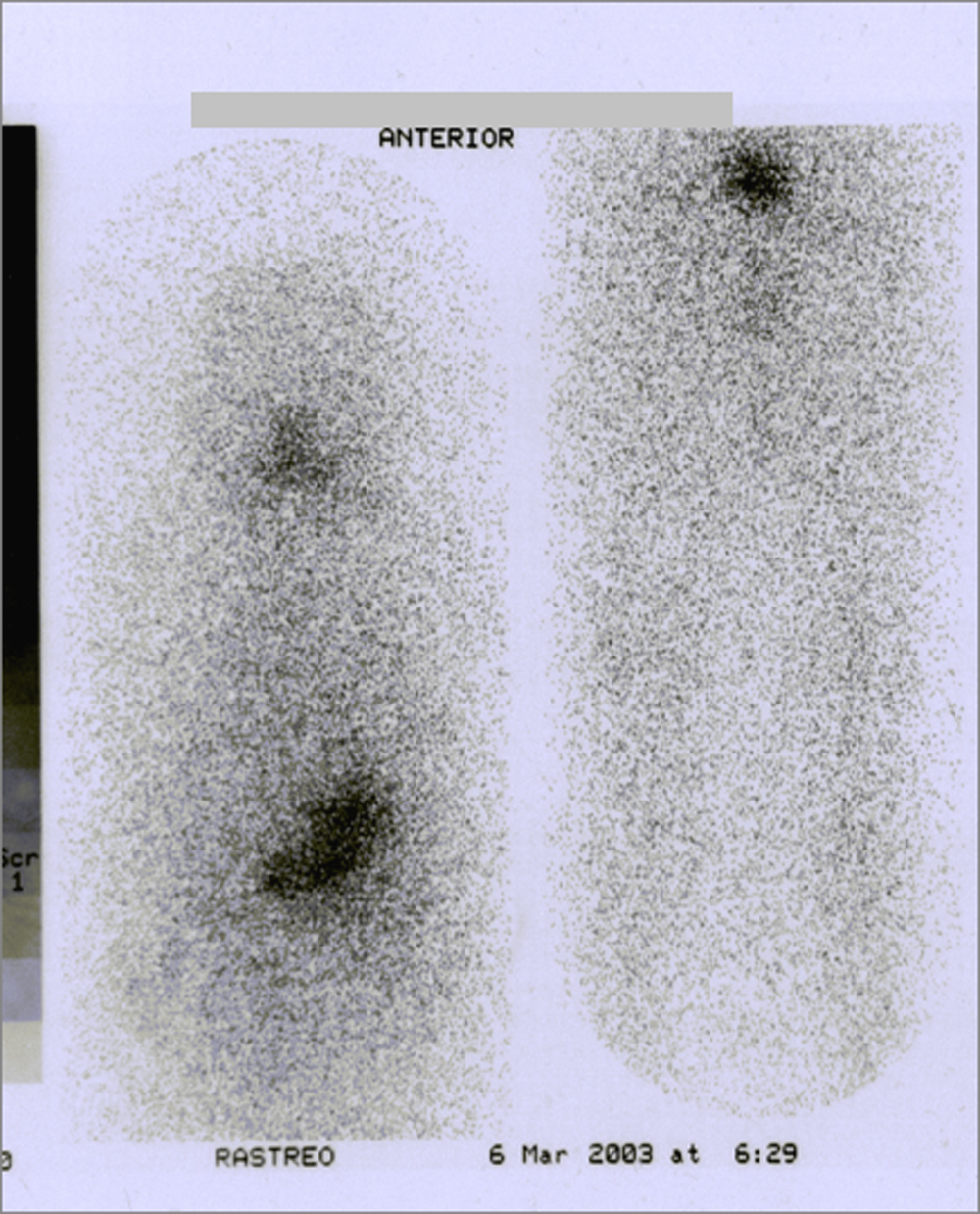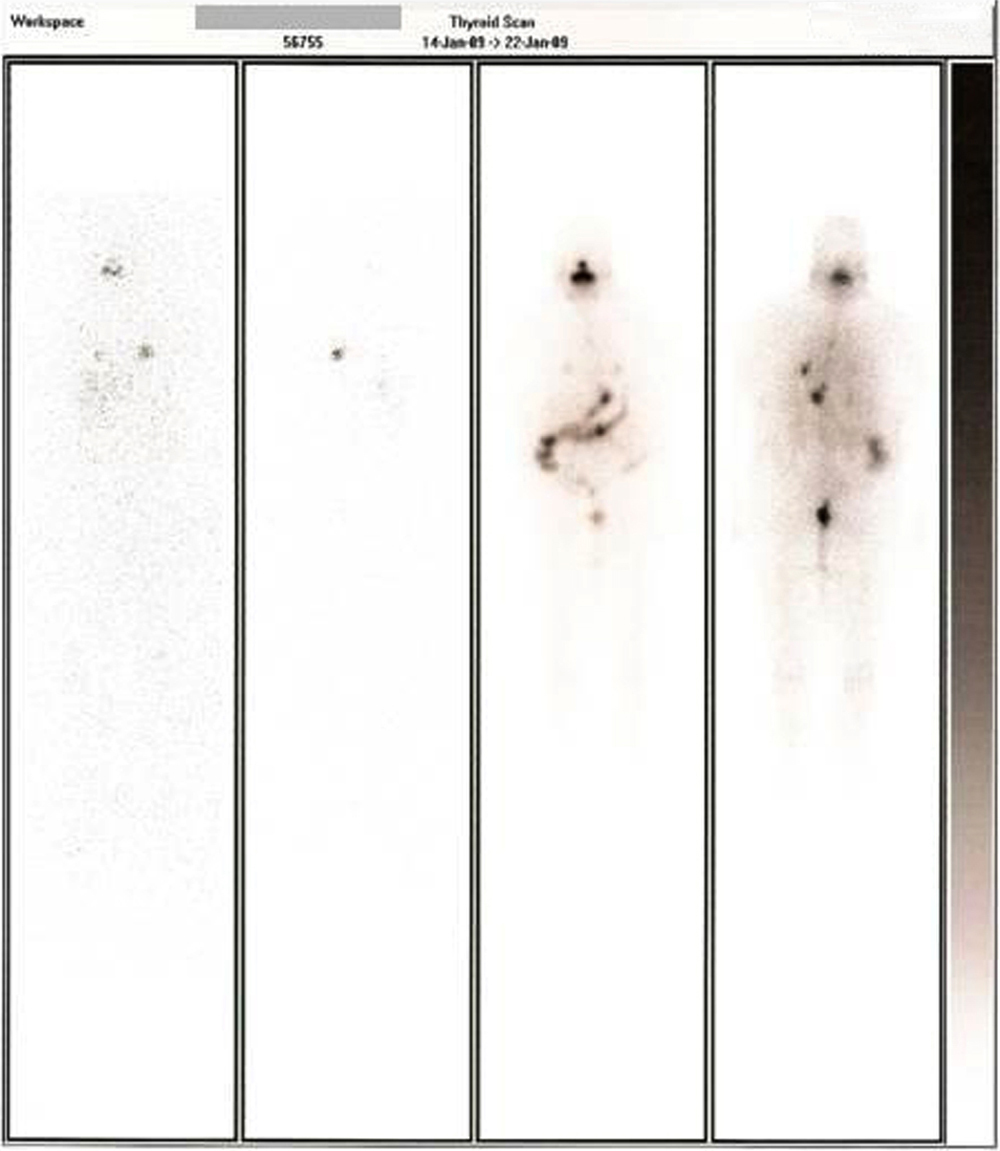En el manejo de los pacientes con recidiva o metástasis de carcinoma diferenciado de tiroides, el tratamiento con radioyodo (RDI) es un tratamiento efectivo. Sin embargo, algunos de estos pacientes, a pesar de tener niveles elevados de TGB en sangre, no presentan captación de RDI en el rastreo corporal y, por tanto, pierden la capacidad de responder al tratamiento con él. Actualmente se están estudiando diferentes fármacos con posible efecto rediferenciador, entre los que se encuentran la rosiglitazona y diferentes retinoides. Su objetivo es aumentar la captación de RDI por las células tumorales. Se presenta el caso de una paciente que se sometió a tratamiento con rosiglitazona como tratamiento rediferenciador (8mg/día durante 2 meses) y con se logró captación de RDI por las metástasis pulmonares, con posterior disminución del tamaño de las mismas.
Treatment with radioiodine (RDI) has been shown to be an effective option in patients with differentiated thyroid cancer with recurrent or metastatic disease. However, in spite of having elevated levels of thyroglobulin in blood, in some of these patients, the whole body scan does not detect radioiodine uptake due to loss of differentiation of the neoplastic cells, thus leading to loss of efficacy of the treatment. That is why drugs with potential differentiating properties, like rosiglitazone or retinoids, are being studied. The aim of these drugs is to improve RDI uptake by the tumor cells. In this work, we have described the case of a patient in whom uptake of RDI by the pulmonary metastases, with subsequent decrease of their size, was achieved after treatment with rosiglitazone (8mg/day for 2 months) as redifferentation therapy.
Artículo
Comprando el artículo el PDF del mismo podrá ser descargado
Precio 19,34 €
Comprar ahora








